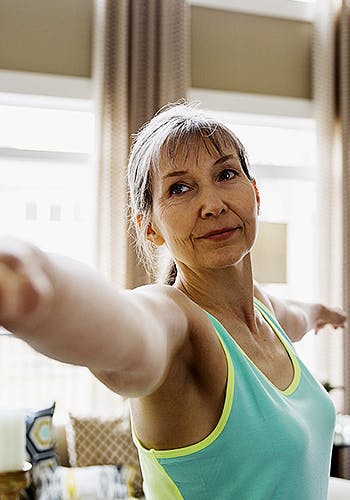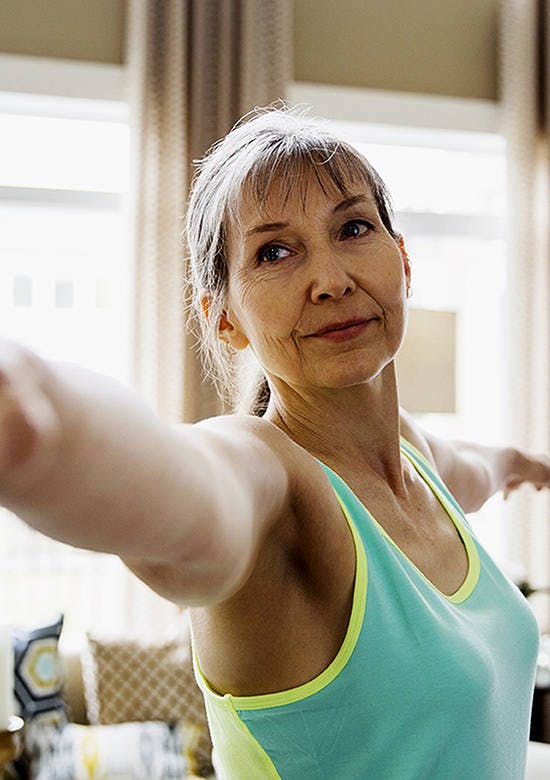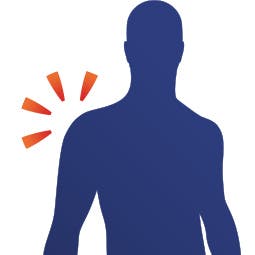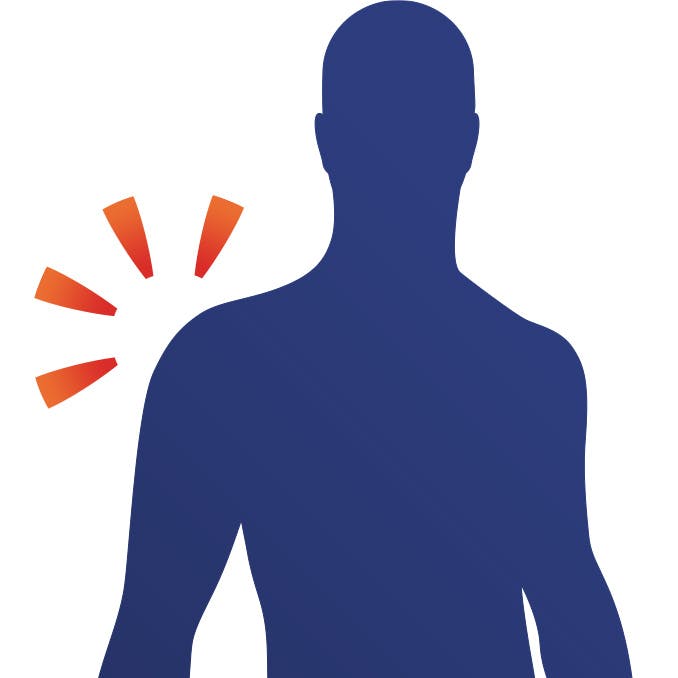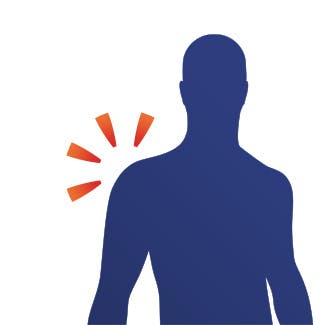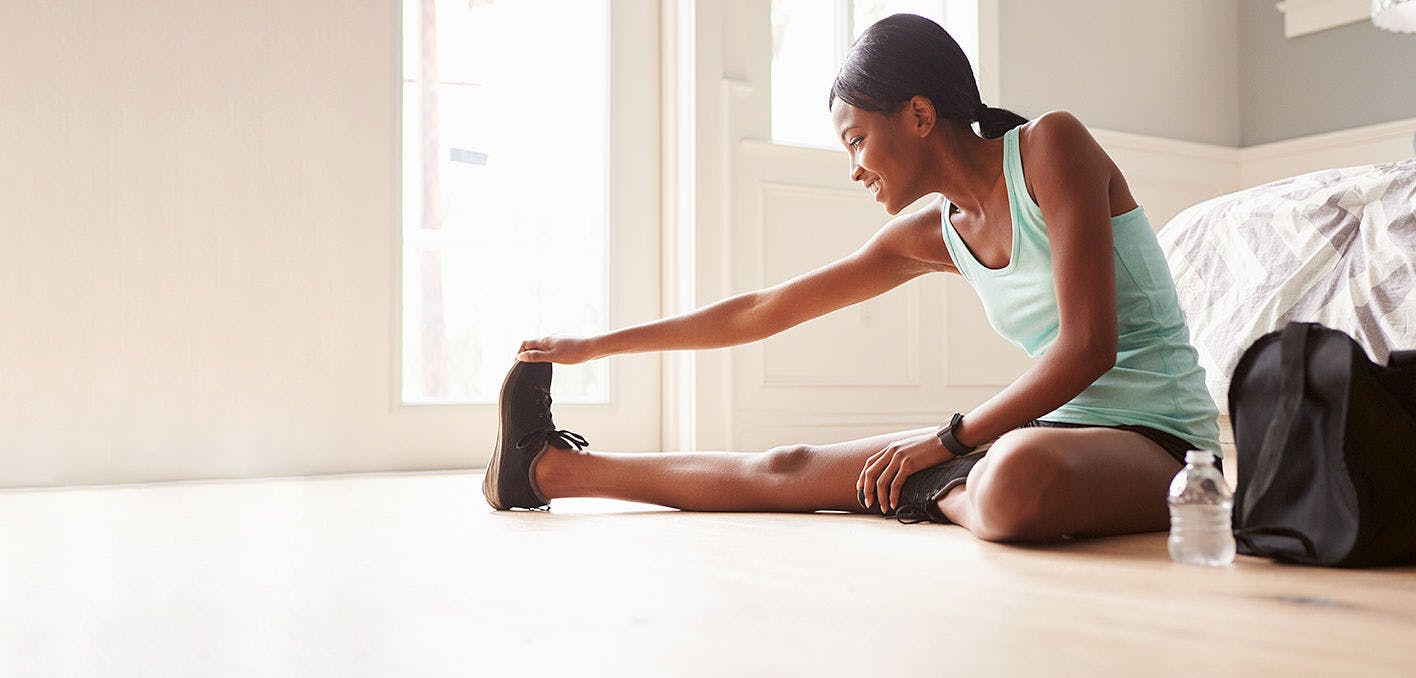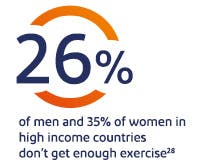Find out how your body works, changes you may experience as you get older, and how to deal with age-related body pain.
Anatomy of the body
In your body, bones, muscles, tendons, ligaments, nerves and other tissues combine to create the ’musculoskeletal system’, which allows the body to move and maintain its form and shape.
- Our bones form the skeleton, the framework that provides support and protects the soft tissues that make up the rest of the body.
- The muscles, controlled by the nervous system, provide us with strength, balance, posture, movement and heat.
- Muscles and bones attach at the joints, where bones meet, to allow our body to move. Joints can be found in our knees, shoulders, hips, wrists and fingers.
- Ligaments are bands of fibrous connective tissue that connect bones together to support and strengthen joints.
- Tendons are also bands of fibrous tissue, but which connect muscles to bones, allowing them to move.
- Cartilage is the rubbery substance that coats the ends of bones in joints to help cushion them and allow them to move smoothly.
- Nerves carry information about sensations and movement throughout the body.
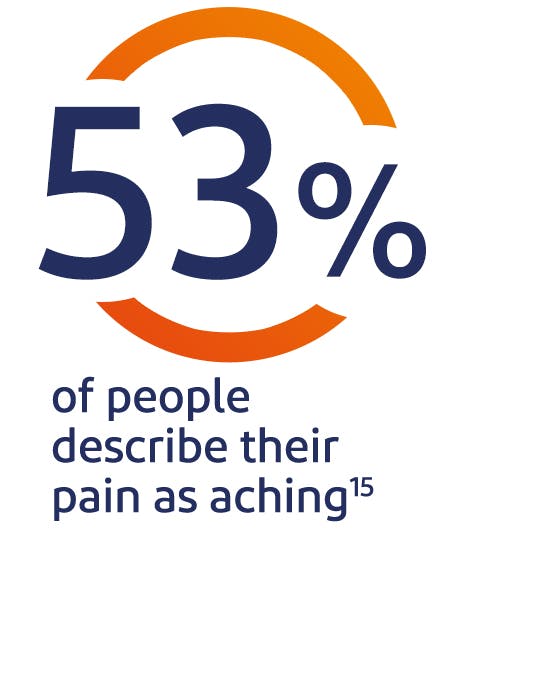
Aging and our bodies
As you get older, your body changes - when our body’s cells, tissues and organs change over time, it affects how the body functions.[100]Cells become larger with age and are less able to divide and multiply, losing their ability to function, or even beginning to function abnormally.[100]Aging also causes tissues to lose mass (known as atrophy) or to become more rigid and difficult to move.[100]Over time, bones lose density and become more brittle, while thinning of bones in the spine (vertebrae) can cause them to become curved and compressed.[100]
Taking care of our aging bodies
One of the best ways to slow or prevent problems with muscles, joints and bones is moderate exercise, which can help you to maintain strength, balance and flexibility.[101]
If you do begin to experience more pain in your body, whether it’s your back or shoulders aching more at the end of a long day, there is no need to simply accept pain as a fact of getting older. There are medicines available that can help to relieve your pain and reduce the inflammation that is often a cause of pain. Your pharmacist can advise you on what products you can use to treat your pain. They can also offer advice on diet and exercises that can help to ease pain.
If you suffer from persistent pain in your joints, muscles or bones as you get older, you should visit your doctor who can carry out an examination or tests to identify the cause of your pain and offer advice on how to ease the pain as well as prescribing stronger medicines if necessary. Always tell your doctor about any medicines you are already taking, including ones bought from a pharmacy.


